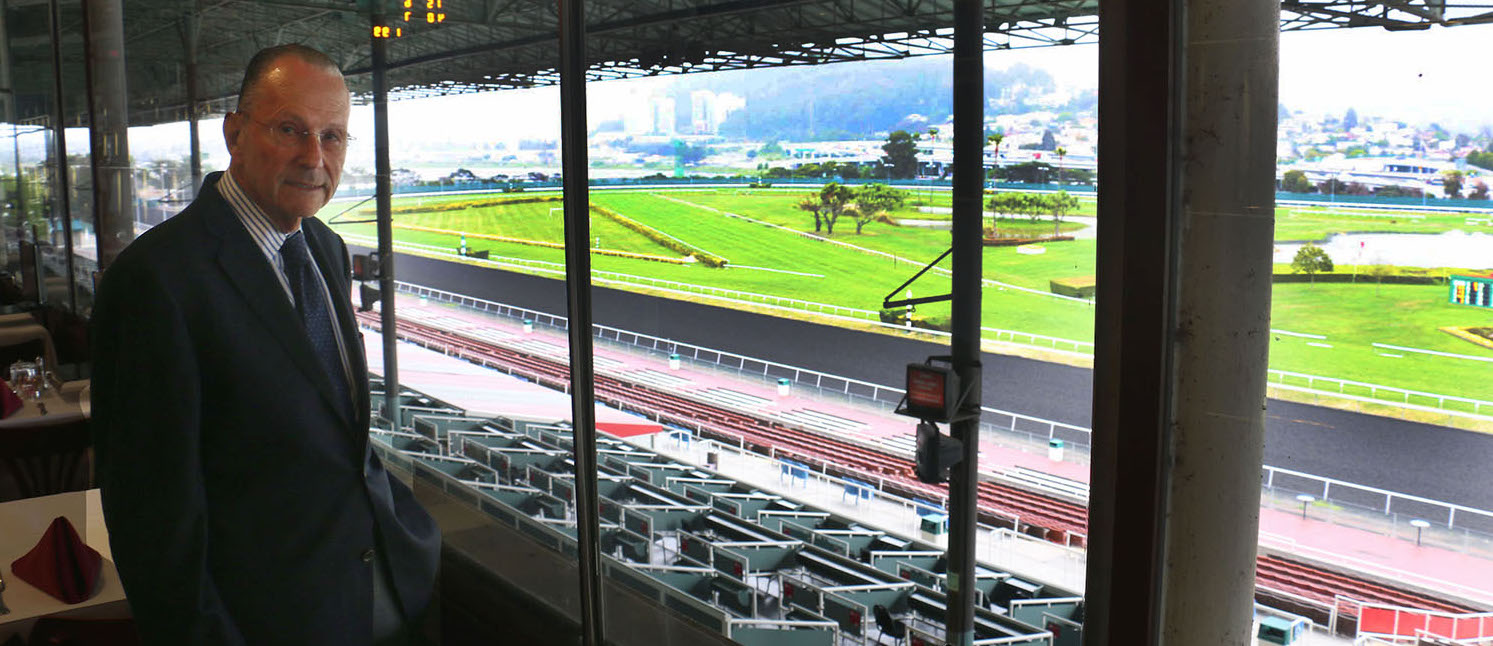Berkeley Law professor Jesse Choper first got into horse racing in 1969, when he and his friend’s father, a district attorney outside of New York, took a trip to the track. At first, Choper didn’t really get the appeal: “I never did understand how a person who worked really hard, I mean long hours, would take off a whole afternoon in the middle of a week to go to the races…. But then I did.”
He developed such a strong interest in horse racing that in 2006 he was appointed to the California Horse Racing Board by then-California governor Arnold Schwarzenegger. “I tried to get on that board for many years, unsuccessfully, despite the fact that I knew each of the previous governors,” Choper says. He met Schwarzenegger only once, and there was a woman in his office who learned Choper was interested, and, he says “she persuaded him, I think.” He’s been reappointed twice since.
When Choper, a former Boalt Hall dean and erstwhile law clerk to Chief Justice Earl Warren, first started playing the ponies, he would just bet a couple dollars but with time he became increasingly drawn to the intellectual challenge of wagering: “My responsibilities when teaching law are to show people how to think clearly, how to analyze, and how to see the various sides of a particular problem,” Choper says, recalling that his wife once poked fun at him for choosing a hobby that required the same focused analysis as his work in law.
To help with that analysis, Choper uses The Sheets, which tracks factors including a horse’s performance record, the size of the field or track, the wind speed, and so on. Before the Internet, The Sheets had to be ordered by mail, and Choper, who wanted the data quickly, had it delivered by Federal Express. “It was quite an exercise,” Choper says now. He and a friend would spend about five hours going over the data before hoofing it to the track, where they’d spend another five watching and betting.
In terms of his gambling success, Choper has had a couple of trifecta bets (when he predicted first, second, and third finishers) that paid over $6,000. And he once won a Pick 6—meaning he picked six winners of six consecutive races—his biggest day at the track.
The winning bets are only half the story, of course.
“It gives you a great deal of satisfaction that you’ve outwitted, in some way, a lot of very smart people.”
“I’m a net loser after all these years—but it’s the cheapest entertainment that you can have,” Choper says, noting that you can have fun for five hours and spend very little money.
“And you’re a genius when you’ve won,” he says. “If there are a couple of hundred people who bet that particular bet…. It gives you a great deal of satisfaction that you’ve outwitted, in some way, a lot of very smart people. I mean, I’m not in this to make a living.”
When asked if he still goes to the races as much as he used to, the answer is: neigh. He used to go about 45 times a year—but now that he’s a CHRB member, it’s more like 20, with at least one full day a week spent on board matters.
Horse racing is also a dying industry, so he doesn’t have as many options as he used to. Back in the 1930s, ’40s, and ’50s, Choper says horse racing was the only legal form of gambling in most states, including California. But today, with the influx of Native American casinos and the lottery, there’s a lot of competition for the gambling dollar, and horse racing has dropped in popularity. Some of the tracks he used to go to, such as Bay Meadows, have closed down.
“All of the tracks are being challenged,” says Choper, who these days usually goes to Albany’s Golden Gate Fields for his racing fix.
When asked if he would want to be reappointed after his third term on the CHRB, Choper says he doesn’t know anyone who has even served three full terms, let alone four. With a laugh he added, “I don’t know, maybe I’m looking to set records.”




















